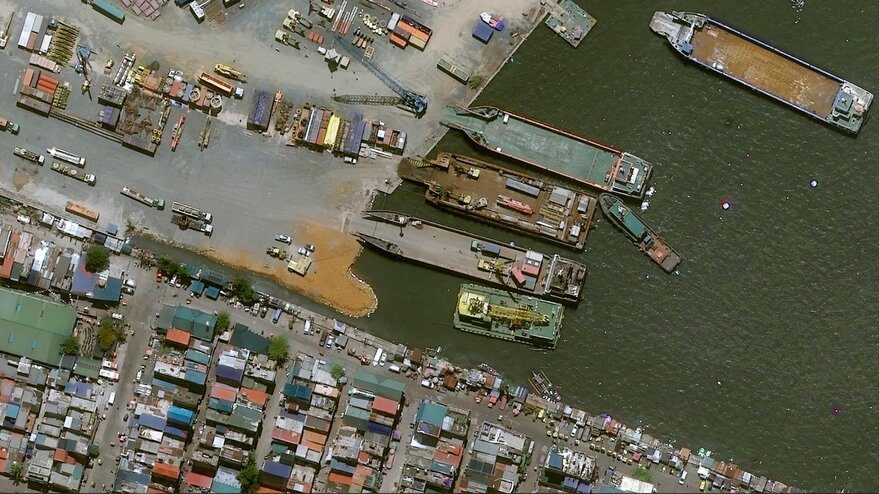Airbus stated that instead of replicating the abilities of the current two Pleiades Neo satellites in space, it will focus on improving the sensors in its Pleiades Neo Next constellation.
Eric Even, head of integrated space solutions at Airbus Defence and Space, expressed the commitment to enhance the constellation. SpaceNews.
Airbus established the Pleiades Neo Next program. Pleiades Neo Next program was initiated in early 2024 and plans were announced on April 29 for the first space-based sensor. The specific launch and quantity of Pleiades Neo Next satellites have not been disclosed by Airbus yet. The program is anticipated to run until 2040.
Pleiades Neo satellites, which were launched in 2021, provide 30-centimeter resolution. The resolution for Pleiades Neo Next is expected to be better, but the exact details have not been revealed by Even.
Enhanced Imagery
Even mentioned the desire to enhance the constellation with a superior product following a previous launch failure. An additional sensor will be added, with each subsequent one improving on the last.
Similar to Pleiades Neo, Pleiades Neo Next will capture imagery in six spectral bands: red, green, blue, near infrared, and deep blue. Both sensors cover 14-kilometer swaths.
In preparation for Pleiades Neo Next, Airbus is upgrading its Earth-observation ground segment. Images from Pleiades Neo Next, like those from Pleiades Neo, will be directly accessible on OneAtlas, Airbus’ cloud-based platform.
Once the data reaches OneAtlas, it will be available for analysis by Airbus’ or third-party AI tools, according to Even.
High Demand
The loss of two Pleiades Neo satellites in a 2022 ArianeSpace Vega C launch failure was a significant setback for Airbus.
Even emphasized the emotional toll and the importance of resilience after the setback.
Demand for data from its Pleiades Neo satellites has been strong for Airbus.
Even highlighted the impressive demand and successful performance of the production chain, despite having only two satellites in operation last year.









